Personal motives are not enough to replace FLA lawyer - Supreme Court
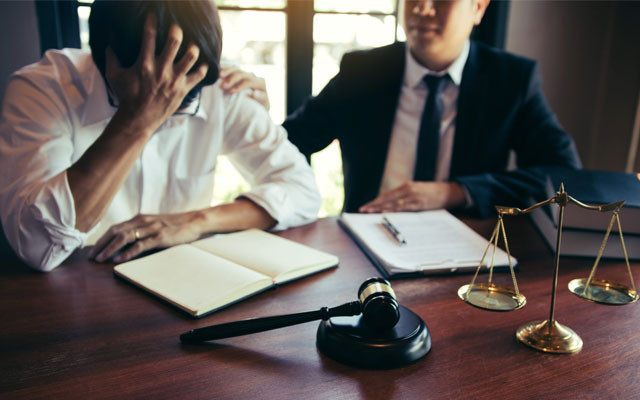
A person receiving free secondary legal aid may not, at his or her own discretion, demand that the court replace the appointed defense counsel for personal reasons in the absence of reasonable grounds for doing so.
This conclusion was made by the Criminal Court of Cassation of the Supreme Court in case No. 748/1972/19. The decision of 21.11.2024 was published in the Unified State Register of Court Decisions.
Appealing the verdict in cassation, the convicted person requested that the court decisions be canceled on the grounds of significant violations of the requirements of the criminal procedure law. In particular, the local court did not consider his application to withdraw from the appointed defense counsel, who did not provide him with adequate legal assistance.
The high judges concluded that these arguments were not based on legal requirements and the case file.
Part 3 of Article 42 of the CPC provides that a suspect or accused has the right to:
- To refuse a defense counsel at any time during criminal proceedings;
- Receive legal assistance from a defense counsel at the expense of the state in cases provided for by the CPC or the Law on Free Legal Aid, including in connection with the lack of funds to pay for such assistance.
According to Article 54 of the CPC, a suspect or accused person has the right to refuse a defense counsel or replace him or her. At the same time, a waiver of defense counsel is not accepted if his or her participation is mandatory. In such a case, if the suspect or accused waives the defense counsel and does not engage another defense counsel, the defense counsel must be engaged to provide defense as assigned.
Thus, at all stages of criminal proceedings, the law provides a person suspected, accused or convicted of a criminal offense with the opportunity to have a defense counsel either chosen by him or her or appointed by him or her. Such a person is also provided with the opportunity to refuse a defense counsel or replace him or her in accordance with the requirements of the procedural law.
At the same time, the right of a person to replace a defense counsel is derived from the right to freely choose a defense counsel, which the person exercises independently by concluding an agreement with the defense counsel of his/her choice. This right does not extend to the content of the right to free secondary legal aid, where a person does not choose a defense counsel but receives protection guaranteed by the state and at public expense.
After all, free secondary legal aid is a type of state guarantee that consists in creating equal opportunities for access to justice (Article 13 of the Law on FLA). And in the course of realization of this guarantee, a person is deprived of the opportunity to freely choose a defense counsel. The latter is appointed by the decision of the investigator (prosecutor) or by the decision of a judge or court. Therefore, a person who receives free secondary legal aid cannot, at his or her own discretion, demand that the court replace the appointed defense counsel for personal reasons in the absence of reasonable grounds for doing so.
The Supreme Court also referred to the case law of the European Court of Human Rights, according to which a person has the right to choose a lawyer if he or she can afford to pay for his or her services. A person who is provided with free legal aid does not have the right to choose a defense counsel. In cases where a free defense counsel is clearly not fulfilling his or her duties, the authorities have a positive obligation to replace him or her.
According to the case file, the defense counsel was involved from the pre-trial investigation stage. He also participated in the trial. The defendant declared his withdrawal from this defense counsel after the circumstances were clarified and verified by evidence and the defense had been given time to prepare for court hearings. The statement was justified by the fact that the defense counsel did not fulfill his duties, did not provide him with proper legal assistance, did not agree on a line of defense with him, and did not take any action to clarify the circumstances that refute the accusation and exclude his criminal liability. The accused considered it necessary to dismiss his defense counsel, but did not want to engage a contracted defense counsel. He did not object to the engagement of another defense counsel by appointment. The court of first instance heard the defense counsel's opinion. He had not yet received any comments or complaints from the defendant, so he believed that the defendant's allegations were groundless. Having made sure that the defendant did not intend to engage another defense counsel under the contract, the court dismissed the motion.
The Court of Appeal, having found no circumstances in the case file that would indicate that the lawyer improperly performed his duties as a defense counsel, saw no reason to believe that the defendant's right to withdraw from defense counsel had been violated.
The cassation instance agreed that the procedural behavior of the lawyer undoubtedly gave the courts grounds to conclude that the defendant's claim that he had not properly performed his duties as a defense counsel was far-fetched. Therefore, the refusal of the appointed defense counsel, whose participation is mandatory, with the demand to engage another defense counsel at the expense of the state was based solely on the defendant's personal motives, unrelated to the inadequate provision of his defense. Therefore, in this particular case, there are no grounds to consider that his right to defense was violated as a result of the court's failure to accept such a waiver of defense counsel.
The convict's arguments boil down to disagreement with the court's decision not to accept his waiver of appointed counsel, whose participation is mandatory. At the same time, there is no objective evidence of improper performance of professional duties by the lawyer, in particular during the trial in the court of first instance, which could have led to a significant restriction or violation of the convict's rights. Accordingly, there are no grounds to believe that the person's right to defense, a fair trial, or obstacles to the exercise of other rights provided for by law were violated.
The Supreme Court reminded that the effectiveness of the defense is not the same as achieving the desired result for the accused in the trial, but rather the provision of adequate and sufficient opportunities for the accused to defend himself or herself against the charges in the manner prescribed by law using his or her own procedural rights and qualified legal assistance, which is mandatory in cases provided for by law. The accused's subsequent disagreement with the position and tactics of the defense does not indicate its ineffectiveness.
Popular news

Discussion
Why lowering the age of marriage lacks legal logic
Although until 2012 there was a provision in family law that allowed children to marry from the age of 14 under certain circumstances, its return to Ukrainian law would contradict international obligations and the logic of criminal law.

Self-government
A report on Ukrainian advocacy was presented in the European Parliament
Can a shadow report on advocacy replace the political framework of the Roadmap on the rule of law with demands for the restructuring of self-government? Where is the line between accountability and the seizure of institutions? And how can we respond to narratives with data rather than impressions?

European integration
UNBA and Ukraine's representation to the EU have synchronized their priorities
On February 5, in Brussels, the President of the UNBA, BCU Lidiya Izovitova held a working meeting with the Ambassador Extraordinary and Plenipotentiary of Ukraine, Representative of Ukraine to the European Union Vsevolod Chentsov.
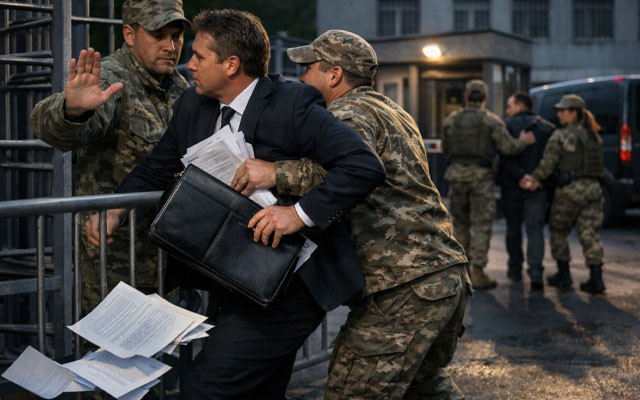
Guarantees of the practice of law
Proceedings opened following attack on advocate in Dnipro
The Committee for the protection of advocates' rights and guarantees of legal practice of the UNBA appealed to law enforcement agencies in connection with an advocate's report of an attack while performing his professional duties. The information was entered into the Unified Register of Pre-trial Investigations and a pre-trial investigation was initiated.
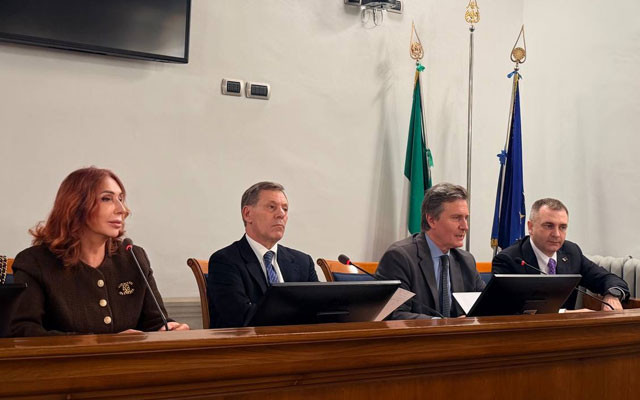
Interaction
«With us — to Europe»: Italian advocacy supports UNBA initiatives
On January 30, a meeting was held in Rome between a delegation from the Ukrainian National Bar Association and the National Bar Council of Italy (Consiglio Nazionale Forense, CNF) on the standards and practices of the legal profession and their significance for Ukraine's European integration process.
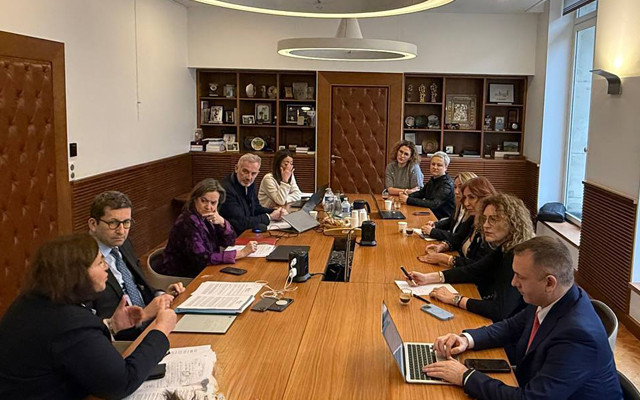
Interaction
France confirms cooperation with UNBA on reforms in the field of the rule of law
On January 29, a working meeting between representatives of the Ukrainian National Bar Association and the French National Bar Council (Conseil National des Barreaux, CNB) took place in Paris.
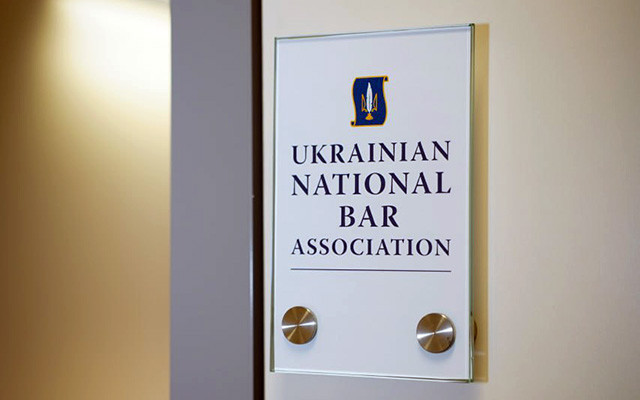
Abroad
UNBA office opens in EU capital
To strengthen the institutional presence of the Ukrainian advocacy community at the European level, an office of the Ukrainian National Bar Association has been opened in Brussels (Belgium), which will serve as a permanent platform for dialogue with European partners.
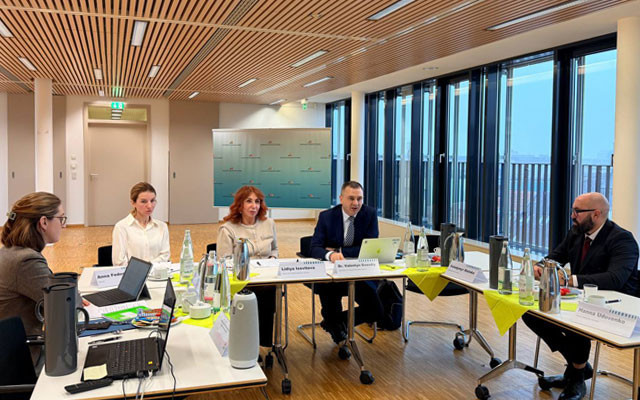
Interaction
UNBA and BRAK discussed European integration priorities and regulation of the profession
On January 26, a meeting was held between representatives of the Ukrainian National Bar Association and the German Federal Bar Association (Bundesrechtsanwaltskammer, BRAK).
Publications

Volodymyr Matsko Extradition as a systemic form of rights violations

Victoria Yakusha, Law and Business The anti-corruption vertical cannot «take care» of the Bar as an institution, - acting head of the HQDCB

Censor.net Protecting advocates – protecting justice: addressing concerns about the new law

Ihor Kolesnykov A BRIEF SUMMARY REGARDING THE APPLICATION OF THE ORDER ON EXTENDED CONFISCATION IN LATVIA REGARDING FINANCIAL ASSETS OF…

Valentyn Gvozdiy WORKING IN A WAR ZONE

Lydia Izovitova Formula of perfection

Sergiy Vylkov Our judicial system is so built that courts do not trust advocates

Iryna Vasylyk Advocacy in the proclamation of Independence of Ukraine
